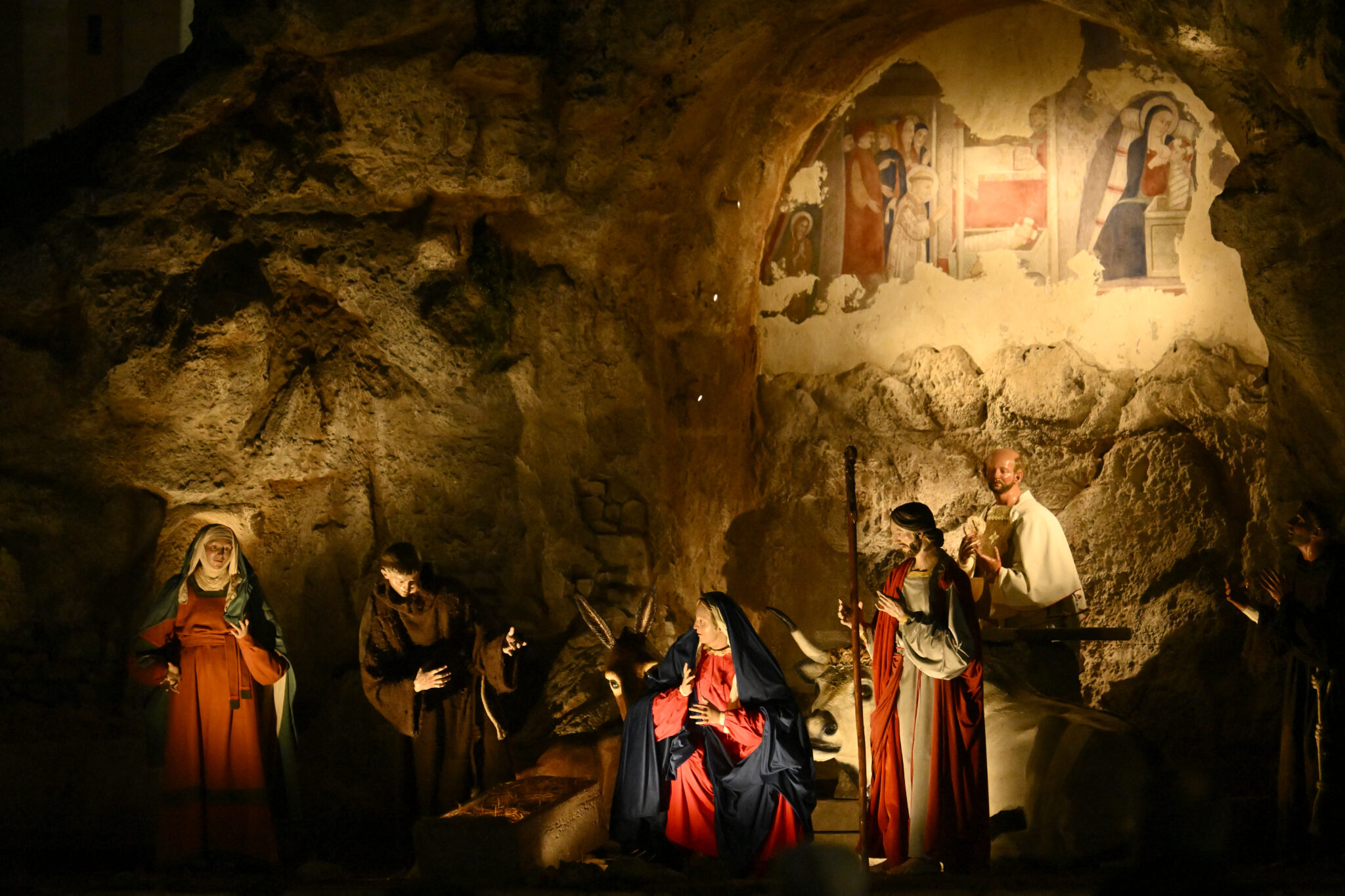The Christmas School of Joy, with the Archbishop of Southwark
Once again at Christmas Our Blessed Lady and St Joseph invite us to meet their child: God’s Son, the infant Saviour and Prince of Peace. But, all too sadly, peace in so many parts of our world is fractured. For too many people Christmas is not a season of good will. Among the many suffering The post The Christmas School of Joy, with the Archbishop of Southwark appeared first on Catholic Herald.

Once again at Christmas Our Blessed Lady and St Joseph invite us to meet their child: God’s Son, the infant Saviour and Prince of Peace. But, all too sadly, peace in so many parts of our world is fractured.
For too many people Christmas is not a season of good will. Among the many suffering from warfare and violence, we think of our brothers and sisters in the Holy Land and in Ukraine facing Christmas this year against the backdrop of war.
How desperately we need to hear the angels’ message of peace and put it into practice. Each time we pause before the Crib, something should change within us. Love must begin to increase. Mercy must being to expand. Peace must begin to reign. Otherwise, have we really received anything of the Good News of Christmas joy?
As we contemplate the Holy Family we gain privileged insight into God’s heart. The extraordinary ordinariness of this new-born child communicates God’s loving sacrifice. God sends His beloved Son: born to end division; born to win forgiveness; born to make us peacemakers, person to person, nation to nation.
We return spiritually to Bet Lehem, to Bethlehem, the “House of Bread”, seeking to be nourished with new hope. We celebrate the birth of divine mercy in person, of divine love with a human face. Will our Christmas encounter with Christ shape us to be more loving? Will it mould us to be more merciful? Will it craft us to be a gift of peace for others?
It all depends how the Nativity story takes root, how it finds expression in our treatment of people who are vulnerable and marginalised. If we really do want to follow the star of compassion we will be guided quickly, and daily, to those who need help.
In the early 1930s a devastating famine in Ukraine – the Holodomor – killed millions of people. Since then, bread – a staple food of life – has been treated with special significance there. So precious did food become after that terrible time of starvation that a tradition arose where, if a piece of bread fell to the ground, it was kissed as it was picked up. I am told this is still a custom today. To kiss and honour bread that has fallen to the ground. This has deep resonance for our faith at Christmas.
The tiny baby from heaven is born in a town called “House of Bread”. He is laid in a feeding trough. He comes as food for the life of the world. He will grow to identify himself as “the bread of Life which has come down from heaven”. He will tell us “whoever eats this bread will live forever”. The night before he died, our Saviour took bread, blessed, broke and gave it saying “This is my body, which is given for you; take and eat of it.“
This Christmas, in faith, we too spiritually “kiss bread”. We kiss and honour the Lord Jesus, the Bread of Life born from heaven. God taking flesh among us is an amazing act of divine condescension. In Christ, God descends to be with us, stoops down, and lowers himself. His Son will die and rise so that we can ascend to heaven.
The great condescension that happened uniquely in Bethlehem happens, in another sense, at every celebration of Holy Mass. This divine condescension, the descent of Christ to be with us, takes place on the altar in the Eucharist. Our Lord comes in the Bread that is his Body: food for a world broken by terrorism, violence, and war, not least in his beloved homeland.
Speaking of the Eucharist, St Augustine said “Believe what you see, see what you believe and become what you are: the Body of Christ.” Christ comes to us in Holy Communion, as food for life and food for love, precisely so that we can be this life and love for the world. He is the Lamb of God who takes away our sins and grants us peace.
Adoring Christ in the manger points us to the Eucharist. Adoring Christ in the Eucharist points us to serving others. Serving others changes our hearts to become cruciform through self-giving. When this happens, the Gospel takes root within us and bears fruit that lasts. We become more readily capable of recognising every person, each human life, as a gift from God. We no longer wait for others to change the world. We begin ourselves, starting small, whenever and however we can.
When Christ’s self-giving is born from our heart the Word takes flesh through us, bringing to birth gift of peace. Is this not the timeless lesson of the Christmas school of Joy?
The Most Revd John Wilson is the Archbishop of Southwark
The post The Christmas School of Joy, with the Archbishop of Southwark appeared first on Catholic Herald.














